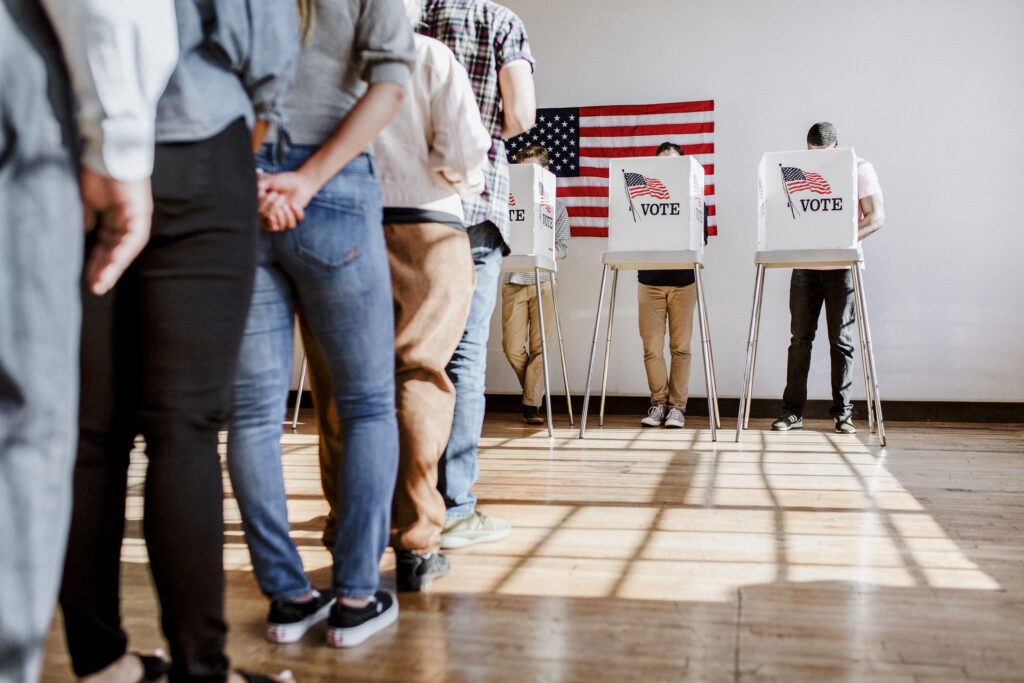Congressional leaders are now looking to move the vote on extending the moratorium on state and local taxation of Internet access and on discriminatory taxes on emails and other data to the lame duck session and push to attach to it the unpopular, disruptive Marketplace Fairness Act.
Since 1998, the Internet Tax Freedom Act (ITFA) has helped promote the growth of the Internet, but the moratorium is currently set to expire November 1. Congress is considering the Permanent Internet Tax Freedom Act (PITFA), written by Judiciary Committee Chairman Bob Goodlatte (R-VA) and cosponsored by 138 Republicans and 76 Democrats. PITFA would permanently extend the moratorium and end the existing “grandfather clause” that allows seven states (Hawaii, New Mexico, North Dakota, Ohio, South Dakota, Texas, and Wisconsin) to tax Internet access. According to Stateline, the seven states and their local governments stand to lose about $500 million annually in revenues; although not insignificant, that represents only a small portion of most state budgets.
The Permanent Internet Tax Freedom Act is a commonsense Internet policy that is long overdue. As the Internet has become one of the driving forces behind economic growth, ensuring affordable access for businesses and consumers is crucial. Wireless services are already taxed higher than almost all other goods and services; the nonpartisan Tax Foundation found almost half the states are now imposing wireless taxes above 10 percent.
Cheap and reliable access to the Internet, allowed in part by the moratorium, was a key force behind the quick ascendance of the Internet and the online economy. Implementing PITFA would eliminate grandfathered Internet connection taxes and reduce many households’ broadband costs. A permanent Internet access tax moratorium would help expand broadband access and development while reducing the need for government broadband spending.
The deceptively named Marketplace Freedom Act (MFA), by contrast, would expand states’ ability to force out-of-state retailers to collect sales taxes regardless of whether the retailer has a physical presence in the state. Imposing the tax on online and mail order sales would hurt the online economy; hinder tax competition among the states; raise far less revenue than legislators expect; and worst of all, open up taxpayers to a slew of new possible taxes.
Consumers ultimately bear the burden of added costs and thus would be the real losers under MFA. Although MFA proponents claim it is needed to restore a balance between online and brick-and-mortar retailers, in reality the MFA would give brick-and-mortar retailers a distinct advantage. Even with today’s technology, it is difficult and expensive for online merchants to accurately charge sales taxes for the products they sell to the 9,600 different taxing bodies in this country. In addition, local retailers benefit from services such as roads, police, fire, accident and disaster protection, and utilities delivered over money-saving public rights of way. Out-of-state retailers get none of these.
Taxes on internet service and on online purchases are two separate issues, and Congress should deal with them separately, passing PITFA and rejecting the MFA.
The following documents discuss Internet access taxes from multiple perspectives.
Texas, 6 Other States May Lose Ability to Tax Internet Access
http://www.dallasnews.com/news/metro/20140824-texas-6-other-states-may-lose-ability-to-tax-internet-access.ece
Kimberly Railey of The Dallas Morning News examines Internet access taxes, the proposal to make the current moratorium permanent, and the possible state budget effect of ending the grandfather clause for states with access taxes.
Sweet 16
http://www.ipi.org/ipi_issues/detail/sweet-16
Bartlett D. Cleland of the Institute for Policy Innovation discusses the legislation introduced in both the House and Senate to make permanent the current moratorium on Internet access taxes, to prevent multiple or discriminatory taxation of electronic commerce, and to end the grandfathering that provides seven states with various loopholes to continue discriminatorily taxing the Internet. Cleland argued the “time is now for Congress to recognize that a permanent moratorium has come of age and mark the occasion by saying goodbye forever to discrimination. A permanent, uniform moratorium opposing discrimination against the Internet is the answer.”
States Watching Congress on Internet Access Taxes
http://www.pewtrusts.org/en/research-and-analysis/blogs/stateline/2014/08/06/states-watching-congress-on-internet-access-taxes
Adrienne Lu of Stateline reports on Congress considering whether to make permanent the ban on state and local taxes on Internet access or to extend it and pair it with controversial online sales tax legislation.
Ten Principles of Telecom Policy
http://heartland.org/policy-documents/ten-principles-telecom-policy
In this Heartland Institute Legislative Principles booklet, Hance Haney and George Gilder examine the results of telecom reforms in Indiana, document the advances made by other innovation leaders in the telecom market, and explain how other states can follow their lead to reap the rewards of new investment in telecommunication services.
Taxes and Fees on Communication Services
http://heartland.org/policy-documents/no-113-taxes-and-fees-communication-services
In this Heartland Institute Policy Study, David Tuerck, Paul Bachman, Steven Titch, and John Rutledge document taxes and fees on communication services, describe their destructive consequences, and call for tax and regulatory reform.
The Case for Tax-Free Internet Access
http://heartland.org/policy-documents/case-tax-free-internet-access
Daniel Castro of the Information Technology and Innovation Foundation discusses the advantages of tax-free Internet access and argues for keeping the moratorium on Internet access taxes. “State tax policy should reflect the fact that Internet access is not merely a consumer good, but rather a tool used by producers to increase economic efficiency and lower the cost of production,” he writes.
The Economic Impact of Taxing Internet Access
http://www.heritage.org/research/reports/2004/02/the-economic-impact-of-taxing-internet-access
Heritage Foundation researchers Norbert J. Michel and William W. Beach predict taxing Internet access would reduce GDP, disposable income, and employment.
Internet Tax Debate: Freedom vs. Taxation
http://www.atr.org/internet-tax-debate-freedom-vs-taxation-a1933
Americans for Tax Reform argues keeping the Internet tax-free represents freedom and that taxes on Internet access would become onerous if allowed.
A Scare for the Web: Will Congress Let the Internet Tax Ban Expire?
http://heartland.org/policy-documents/scare-web-will-congress-let-internet-tax-ban-expire
James L. Gattuso of the Heritage Foundation explains why the federal ban on Internet access taxes should be made permanent.
Internet Access Tax Moratorium: Revenue Impacts Will Vary by State
http://heartland.org/policy-documents/internet-access-tax-moratorium-revenue-impacts-will-vary-state
The Government Accountability Office examines the Internet access tax moratorium, reviewing its language, legislative history, and associated legal issues; examines studies of its likely revenue impact; discusses interviews with experts in access services; and presents information about eight case-study states not intended to be representative of others.
Bandwidth for the People
http://heartland.org/policy-documents/bandwidth-people
Robert Crandall, Robert Hahn, Robert Litan, and Scott Wallsten discuss broadband policies and their possible effects in this AEI-Brookings Joint Center for Regulatory Studies paper. The authors argue Internet access taxes are likely to be inefficient and more costly to the economy than certain other taxes. Such taxes will also impede broadband rollout. Given the positive effects of competition, it is important to remove obstacles to investment and competition, the authors state. Thus, although averting new access taxes is important, it is probably a second-order concern compared with removing regulatory barriers to competition, the authors conclude.
Never a Right Time to Tax Internet
http://www.cato.org/publications/commentary/never-right-time-tax-internet
Stephen Moore of the Cato Institute argues against Internet access taxes and in favor of the moratorium. Implementing an Internet access fee would do real damage to the tech sector, he writes.
Nothing in this Research & Commentary is intended to influence the passage of legislation, and it does not necessarily represent the views of The Heartland Institute. For further information on this and other topics, visit The Heartlander’s Tech News Web site at http://news.heartland.org/tech, The Heartland Institute’s Web site at http://heartland.org, and PolicyBot, Heartland’s free online research database, at www.policybot.org.
The Heartland Institute can send an expert to your state to testify or brief your caucus; host an event in your state; or send you further information on a topic. Please don’t hesitate to contact us if we can be of assistance! If you have any questions or comments, contact Logan Pike, Heartland’s state government relations manager, at [email protected] or 312/377-4000.



